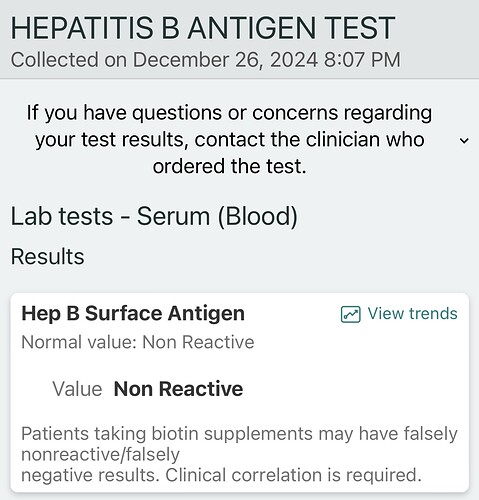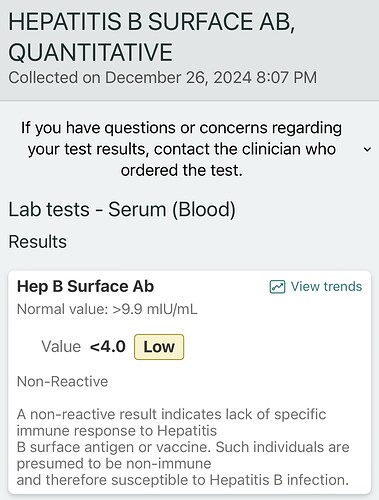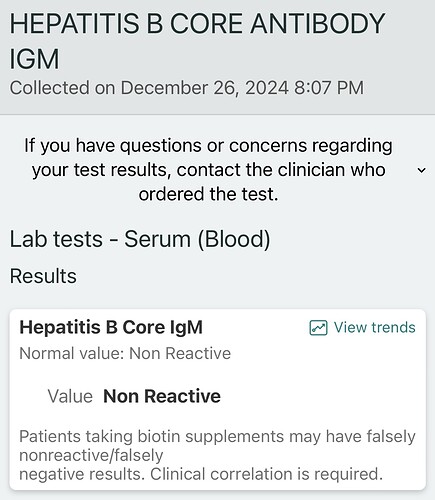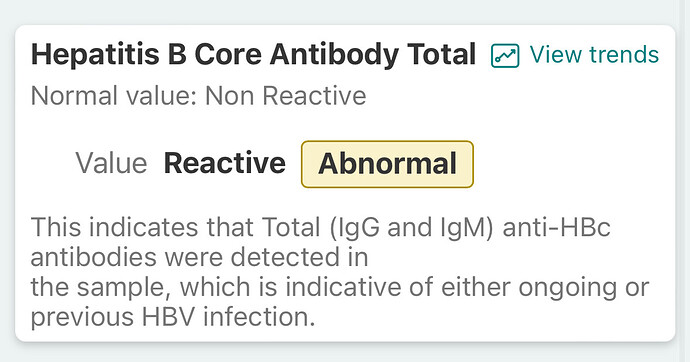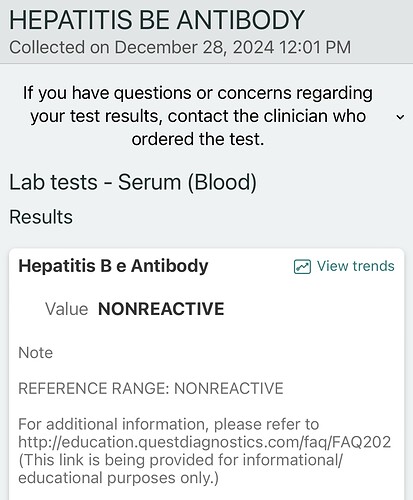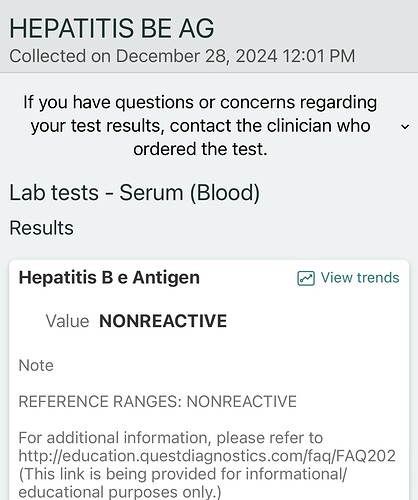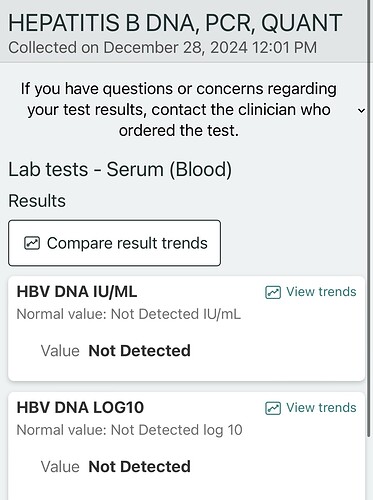Hi all,
I have been recently diagnosed and I have a few questions and mainly looking for some reassurance and advice - this may be a long post.
This whole experience has been so difficult for me and I have been unable to talk to anyone about this just yet, I understand how morally wrong this may be but I feel like I will be riddled with judgement and I am very scared that my family and boyfriend who I’ve only been with for 3 months will leave me.
In June my bloods were taken and my diagnosis was e antigen negative- chronic hep b and my viral load was 11,500
I got tested again in August and my viral load increased to 18,400 - both times my Dr said my liver biochemistry is normal.
I got put on antivirals in August and now my viral load is <10 IU/ml and my liver biochemistry is still normal as mentioned by my Dr, I just want to know if this is a good thing? and did my viral load drop this quickly because my levels were not very high to begin with, I know this seems like common sense but again, I am seeking all the reassurance I can get.
My second question is, what is the difference between someone who is e antigen negative and e antigen positive? And does everyone who is e antigen positive eventually go into the negative stage?
Does me being e antigen negative put me in a worst off position?
All information ive seen online is that people who’s viral load is over 20,000 is put on medication and because I was lower than that, I am confused and anxious as to why I was given meds.
I found out about this because I donated blood, in the letter they wrote me, it stated the following:
“Tests have shown that you have developed antibodies to part of the virus, called ‘e’ antibodies or anti-HBe. These antibodies are not able to overcome the infection and eliminate the virus from your body, but they make you less infectious to other people, and at less risk of developing health problems yourself.”
^^ Is anti-hbe the same as e antigen negative? And how come my doctor has not mentioned anything about antibodies, is that a good thing or in my case does it not make a difference?
My final question is, (I asked the same question to someone from a helpline here in the uk and looking for other options) is it true that t your viral loads have to be in the hundreds of thousands - millions in order to transmit this virus sexually?
I may have other questions along the line but any information will be appreciated.
Thank you!
